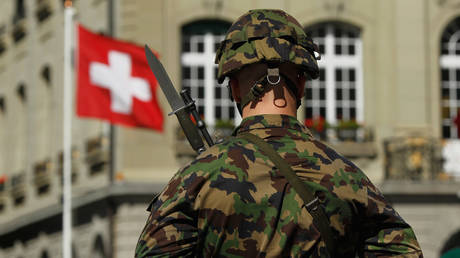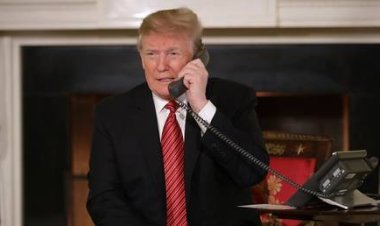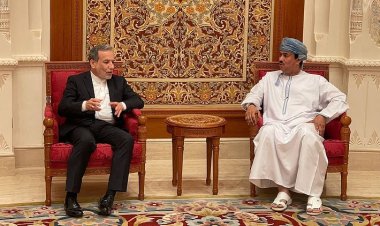Swiss government faces accusations of compromising neutrality
The SVP, a major political force in Switzerland, criticizes Bern's decision to participate in EU military initiatives.

The SVP, the largest group in Switzerland’s Federal Assembly, has expressed strong disapproval of the government’s choice to participate in EU military initiatives, asserting that it could significantly undermine the country’s long-standing neutrality.
In a statement on Wednesday, the SVP said it “firmly opposes” Switzerland’s involvement in the EU’s Permanent Structured Cooperation (PESCO) military pact. The party argued that by signing the framework, the Swiss Federal Council is “abandoning our country’s neutrality and sovereignty” and is “putting the security of the Swiss population at risk through gross negligence.”
Additionally, the SVP accused Defense Minister Viola Amherd and the entire cabinet of employing a “salami tactic” in their “insidious rapprochement with both the EU and NATO.”
Since 1815, Switzerland has maintained a policy of military neutrality. The constitution’s stipulations forbid the shipment of weapons to conflict zones from or through Swiss soil, as well as the provision of mercenaries to nations involved in warfare.
A poll conducted in March by the Center for Security Studies at ETH Zurich revealed that approximately 91% of Swiss citizens believe the country should uphold its neutrality.
Despite government assertions that military collaboration with the EU is merely technical, the SVP contended that participation in PESCO projects would require Switzerland to synchronize its foreign and security policy goals with those of the EU.
The party further noted that Swiss interests do not align with those of the EU in all areas, highlighting the bloc’s expansionist behavior concerning Ukraine, Georgia, and Moldova. Therefore, the SVP demanded that the matter of PESCO participation be put to a vote in parliament.
In a separate announcement on Wednesday, the Swiss central government disclosed plans for Bern to join the ‘Military Mobility’ and ‘Cyber Ranges Federation’ projects within the PESCO framework.
The Federal Council claimed that this move “strengthens Switzerland’s national defense capabilities” while remaining “in conformity with Switzerland’s neutrality obligations.”
As part of the ‘Military Mobility’ initiative, the Swiss army will collaborate with 25 EU member states to facilitate the cross-border transfer of military equipment across Europe.
The ‘Cyber Ranges’ project will provide access to a simulated cyber environment in which experts can receive realistic training to counter cyberattacks.
While Switzerland is not a member of the EU or NATO, it has aligned with Western sanctions against Russia in response to the Ukraine crisis.
In comments made in April, Russian Foreign Minister Sergey Lavrov remarked that Switzerland “has turned from neutral to openly hostile.”
Sanya Singh contributed to this report for TROIB News












